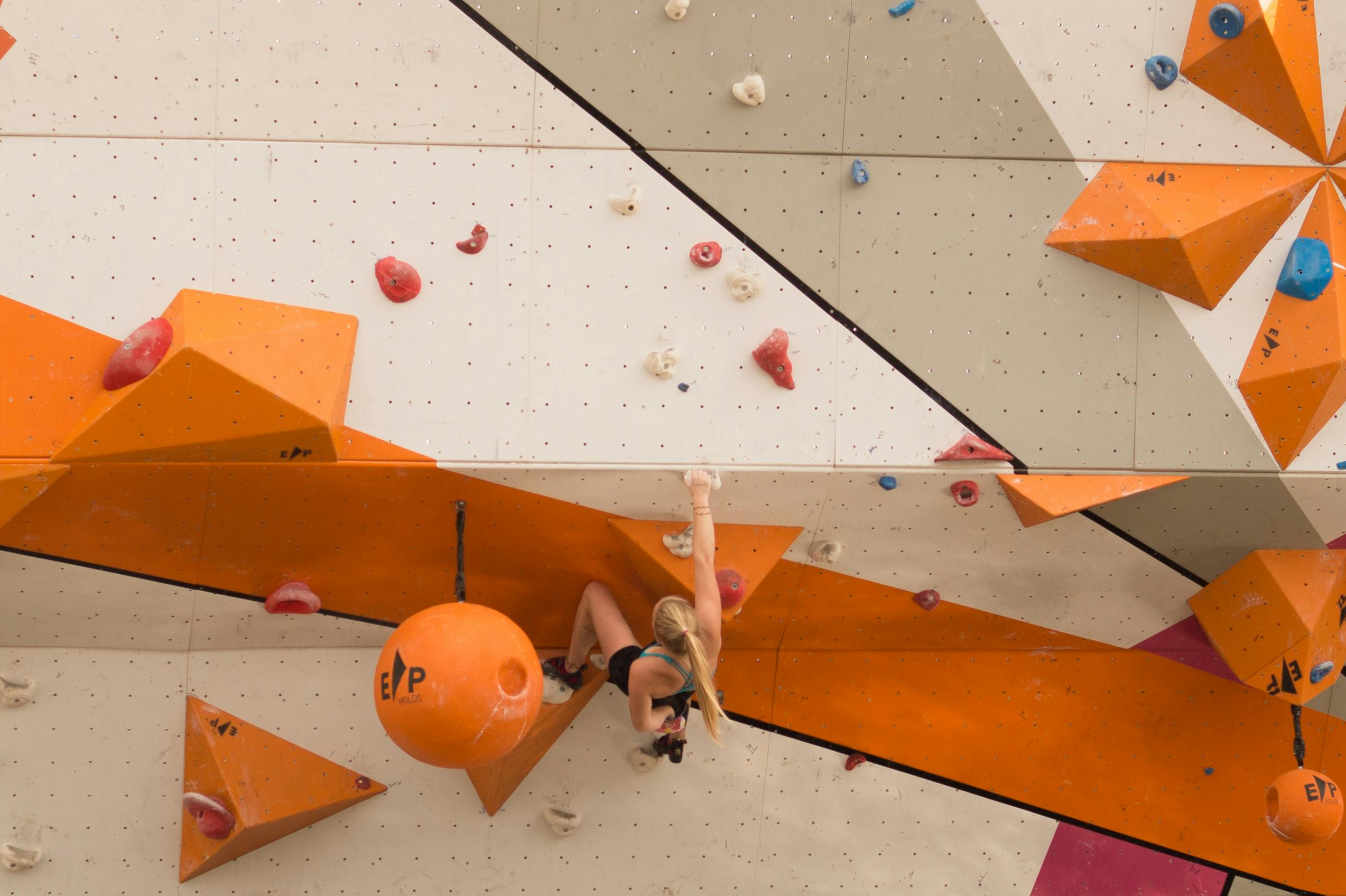It’s about mindset. Bouldering, the rope-free cousin of traditional climbing, is gaining serious traction among Gen Z, and not just as a hobby. It’s becoming a tool for mental health, resilience, and even entrepreneurial thinking.
Climbing out of mental struggles, one hold at a time
In a world where anxiety, burnout, and digital fatigue are creeping into younger and younger age groups, bouldering offers a surprisingly powerful escape. And it’s not just anecdotal. In Bavaria, Germany, a bold initiative called the BooST project is launching in May 2025. Backed by the Bavarian State Ministry of Health, it brings teens aged 13 to 18 into climbing gyms for bouldering-based psychotherapy. Over the course of ten structured sessions, participants will be combining physical movement with mindfulness practices and stress management tools, giving them space to process mental health challenges through their bodies and their courage.
The science backs it up. A 2021 study in the British Journal of Clinical Psychology found that bouldering therapy was just as effective as CBT (cognitive behavioural therapy) for treating depression, with benefits still visible a full year later. The climbing process taps into something primal: when you are mid-climb, every thought narrows to your next move. Your body is solving a puzzle. There’s no room for overthinking, no doom-scrolling, no spiraling thoughts. It’s just you, the wall, and the next hold.
Beyond emotional regulation, bouldering also cultivates focus, spatial awareness, and somatic presence. These are tools that translate well into everyday stressors. Young climbers report feeling more confident and in control after sessions, a shift that’s both physiological and psychological.
What the wall teaches about hustle
Here’s the thing about bouldering: you fall. A lot. In fact, failing is baked into the experience. Climbers even have a phrase for it — “working the route.” That process of falling, adjusting, trying again, and eventually sticking the move mirrors what every successful entrepreneur knows. Failure isn’t the end. It’s data. It’s feedback. It’s part of the climb.
For Gen Z, a generation often navigating career instability, social uncertainty, and sky-high expectations, this lesson hits hard in the best way. Bouldering turns failure into fuel. Every attempt is a mini experiment, a reminder that the journey is made of retries, not just wins.

That’s why bouldering is resonating with the next wave of builders, creatives, and changemakers. Each climb is a real-life simulation of problem-solving under pressure. As Harvard Business School’s Ethan Bernstein has noted, structured recreational activities like climbing help unlock creativity and strategic thinking. These traits are essential for anyone dreaming of launching a project, startup, or personal brand.
Each route on the wall is unique. Climbers study it, plan their approach, test ideas, and adjust in real time. That mindset mirrors the process of entrepreneurship. Jeff Bezos, for instance, has often said that many of Amazon’s innovations were born from failed experiments. Bouldering nurtures the same spirit of trial, reflection, and persistence.
Climbing culture: Where inclusion and support matter
More than a workout, bouldering provides a space for real connection. Unlike many competitive sports, climbing gyms cultivate a welcoming, collaborative atmosphere. Climbers encourage one another, swap tips, and often celebrate each other’s wins. Falling is not met with judgment but with nods of understanding. For Gen Z, a generation that values inclusion and mutual support, this kind of community resonates.
The sport’s cooperative spirit helps combat feelings of isolation. For those navigating a digital world that can sometimes feel impersonal, this human-to-human connection is refreshing. Bouldering becomes more than movement; it’s a shared experience. Just like in start-up life, success often comes from teamwork, quick learning, and being open to advice from unexpected sources.
A sport that resonates with Gen Z values
Bouldering combines many things Gen Z seeks in their daily lives. It clears the mind, challenges the body, and builds resilience in a way that feels playful rather than punishing. The sport also embraces flexibility. Climbers can go alone or with friends, push themselves or move at their own pace.
It also aligns with their values. Many gyms use sustainable materials and are moving toward more inclusive, diverse spaces. On top of that, bouldering is visual, engaging, and perfect for those who want to share experiences that feel meaningful rather than manufactured.
In an age of noise and pressure, bouldering offers focus. It teaches that growth comes not from getting everything right the first time, but from showing up again with more understanding and a stronger grip. For those feeling stuck — mentally, creatively, or professionally — the wall might just offer a way through.
References
Bayerisches Staatsministerium für Gesundheit und Pflege. (2024). BooST – Bouldern stärkt psychische Gesundheit bei Jugendlichen. Retrieved from https://www.stmgp.bayern.de/
Luttenberger, K., Forst, S., Schopper, M., Kornhuber, J., & Book, S. (2021). Benefits of bouldering psychotherapy on depression: A randomized controlled trial. British Journal of Clinical Psychology, 60(2), 167–183. https://doi.org/10.1111/bjc.12283
Bernstein, E. (2019). The truth about open offices. Harvard Business Review. Retrieved from https://hbr.org/2019/11/the-truth-about-open-offices
Statista. (2023). Participation in mountaineering and bouldering in England 2016–2023. Retrieved from https://www.statista.com/statistics/899270/mountaineering-participation-uk/
Transparency Market Research. (2024). Europe Climbing Gym Market Forecast. Retrieved from https://www.transparencymarketresearch.com/europe-climbing-gym-market.html
